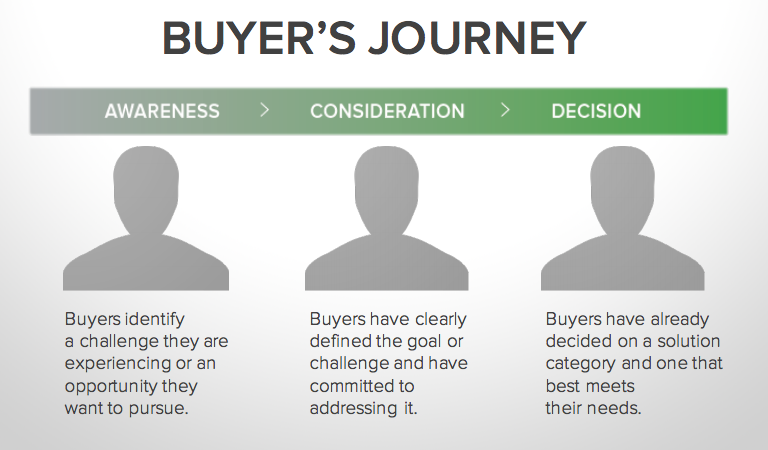5 min read
Why Having A Construction Marketing Strategy Is A Must
![]() Henry Jones
:
23-Aug-2022 14:43:40
Henry Jones
:
23-Aug-2022 14:43:40

Developing a marketing strategy is crucial to the success of any business in the building products and construction industry. People often overlook marketing, placing it under the ambiguous sales or advertising bracket but you should view marketing as so much more.
Marketing is a strategic process that should drive your business development and growth.
Understand What A Construction Marketing Strategy Is
Marketing is the process of engaging and listening to your customers and marketplace to understand their challenges and needs and align your building product companies’ strengths and weaknesses with these findings.
Identify the areas in which you have a competitive advantage, the market(s) that you’re targeting, the demographics of your chosen market(s) and the pricing structure that you plan to use.
Just because I'm feeling hungry, let's consider construction marketing as a cake.
Now, stick with me. This will make sense.
Each of the elements that go into it as a slice of that cake.
Here are a few examples of the different slices you might want to bake:
- Content
- Social Media
- Website
- SEO
- Advertising
If we were going to make that cake, the first thing we'd do is gather our ingredients, to make each slice delicious.
Well, marketing analyses the quantity and quality of your ingredients, the strategies you use to get the best ‘rise’, and the methods by which you tell people that you’ve baked a fantastic cake.
And then when people have eaten the cake, it’s the job of marketing to tell the world how amazing the cake was (preferably with percentages), so you can make more cakes!
What's not to love about that?
The point I’m making is, each component of marketing is a part of the larger strategy, and all components depend on each other for success (and tastiness).
So, let’s explore why marketing and strategy are important and crucial to the success of any building product and construction business.
The Construction Industry Is Changing
The rise in modern methods of construction largely dictates how a construction company operates and manufactures.
Paired with a shortage of skilled workers and a push towards sustainable solutions, there’s a definite need for change, and for organisations to adopt new ways of thinking.
Recent advancements in drone usage and 3D printing mean that the construction industry will likely embrace these forms of technology out of necessity.
Given that technology will ultimately make construction work safer and easier, it’s safe to say that it is here to stay.
But these changes aren't just happening on the operations side of construction.
There are also opportunities to adopt new commercial practices.
A good way to start is by embracing new technologies that can streamline tasks that are time-consuming or repetitive.
Building Information Modeling (BIM), is a great example of a new technology that is becoming an increasingly important tool for architects, allowing businesses to involve clients, collaborators and other stakeholders in the design of built environments from the earliest stages, saving time and money.
Is BIM included in your content marketing strategy?
Construction Marketing Has Evolved
The tactics and strategies that traditional marketers applied were much more media-centric. The focus has now shifted to a more data-driven, digital approach. Marketers can now justify their work, tactics and direction through hardcore data and a tangible return on investment.
This increased clarity gives marketing a much more central and integral role within a business and will continue to be the case in the future.
Construction Business Owner highlights the ‘digital marketing mix’ which talks about the best digital marketing strategies and tactics that the construction industry needs to adopt. They are:
- Website design
- Search engine optimisation
- Social media
- Paid search
- Content marketing
- Automation
- Analytics
- Influencers
- Diagnostics
- AI (including chatbots)
These are just some of the tactics that emphasise the importance of marketing and strategy.
You don't have to use all of these tactics but as part of laying out your marketing strategy, the value and relevancy of each tactic should be considered and included/excluded from your 3-month and 12-month plans.
Construction Marketing Informs Your Audience
Marketing is the ideal tool for educating your specifiers. Through rich website content, your audience will gain an insight into the technical ins and outs of your product, allowing them to build trust with your brand.
And once you've built trust they will be more likely to seek out your services when they need to make a purchase.
To effectively carry out his content strategy, you'll need to create content for buyers at every stage of the journey. The image below shows these stages.

Awareness stage content is typically helpful and educational content that highlights problems or challenges for your audience and then educates them on these topics from a position of authority.
You need lots of variance in length, format, location and depth. Consider creating blogs, videos, CPDs, eBooks, or research papers.
Consideration stage content would be things that help the audience decide on a solution to their problems, and objectively highlight all the solutions of offer and the pros and cons of each. Share examples of successful solutions that you've played a role in.
You can do this with case studies, technical files, comparison charts, expert guides or podcasts.
Decision stage content is where a prospective client is deciding on the company that will provide their chosen solution. You'll want to begin to highlight your value proposition and competitive advantage over the competition.
Testimonials, product reviews, product demos and pricing are all examples of content you can create to fulfil the needs of a buyer at this stage.
By delivering content that is consistent and of value, marketing moves away from an aggressive sales pitch and more towards a useful ‘journey’ through the sales funnel.
If you combine these types of content with a data-driven approach to distribution, that uses SEO, PPC, email and social media, instead of pushing yourselves into view at inconvenient times for your audience your content will appear exactly when and where they are looking for it.
Construction Marketing Builds An Ideal Customer Profile
Understanding your perfect customers is often skimmed over or missed in many businesses’ construction marketing strategies.
Using demographic data, you can construct a description of your ideal customer. You may look at company type, geographic location, turnover, company size, age, number of employees, etc.
This data would then be stored in the company and/or contacts sections of your CRM system.
Getting this data right is an effective way to tailor and segment your content and messages, meaning that you’re communicating with the right people.
You may also find that you have multiple personas for different demographics in the same role.
A millennial architect (aged 21-35) is likely to have different research habits than a baby boomer architect (aged 50+), so your strategies and tactics need to reflect this.
The more data you have at your fingertips, the better the finished persona should be as a touchstone for every part of your sales and marketing activity.
Conclusion
In the last five years, marketing has undergone a major digital transformation. Many traditional marketing methods have been replaced by a much more results-driven measure of effectiveness.
Whilst it could be argued that the construction industry has been a little ‘late to the party’ when it comes to technology, businesses that embrace digital marketing will certainly have a measurable advantage over their competition.
About Insynth
At Insynth we deliver a predictable flow of leads, customers, and specifications for building product brands through our inbound marketing approach, proven to reach a technically demanding audience.
We use the latest marketing techniques such as construction inbound marketing, to equip building product companies to grow sustainability in this era of digital transformation.
As the only HubSpot certified agency to major in construction marketing. We have a proven formula of bringing a variety of functionalities together including CRM Implementation, Web Design, Sales Automation, SEO, and Email Marketing to achieve your ultimate aim: Growing your business and gaining new specifiers and customers.

